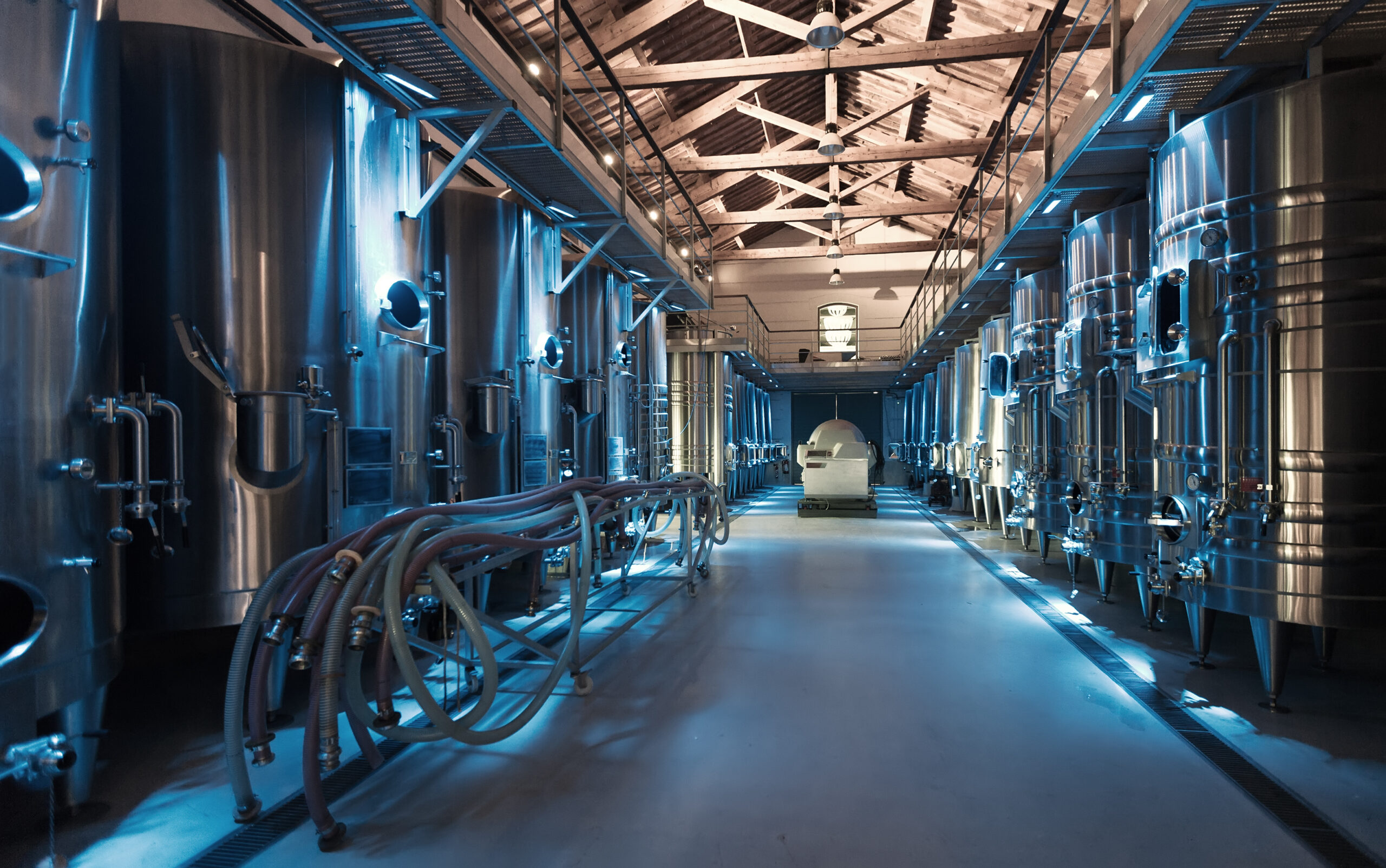A winery chiller is a piece of equipment that allows you to control and maintain the ideal temperature throughout winemaking, including fermentation, aging, and storage. Winery chilling systems are vital for temperature control for wines and fermentation, as they help you preserve the flavor and aroma of the wine. As the chiller keeps the wine at a consistent temperature, it maintains the quality of your wines at each step in the production process.
Benefits of Winery Chillers
Getting a chiller is a vital and worthwhile investment for your winery, no matter the scale of your production. These are some of the benefits a winery chiller offers:
- Better quality and consistency: Chillers maintain the right temperature throughout various stages of winemaking, helping prevent issues like wine clouding or browning during fermentation. Because the chiller maintains a constant temperature, it also helps you standardize your process and your wines so you can achieve the same quality from batch to batch.
- Increased efficiency: Refrigeration is one of the largest contributors to energy consumption in winemaking, so finding ways to be more energy-efficient is essential. Thankfully, winery chillers can quickly chill to desired subzero temperatures, which saves more energy than alternative cooling and refrigeration methods. Another way to save on energy costs using a winery chiller is to operate at higher suction pressure setpoints, which can be done by raising the glycol temperature.
- Cost-savings: Energy efficiency is important for your power consumption and the quality of your wines, as you can let it ferment for longer while saving on your power costs. Because glycol also acts as added lubrication for the chiller pumps, it can extend the life span of your equipment, leading to greater efficiency and savings on maintenance costs.
Types of Chillers Used in Wineries
There are a few types of chiller systems, each with its own pros and cons:
Water-Cooled Chillers
Water-cooled chillers have external cooling towers to reject heat from the refrigerant in the system’s condenser, which cools the vessels. The main advantage of these chillers is that they use water rather than refrigerants. Water-cooled chillers also tend to have a longer life span and operate more quietly than other chillers.
These chillers are quite energy-efficient, which makes them an excellent option if energy-cost savings are particularly important to your brand. However, they cost more upfront since they require extra parts compared to air-cooled chillers, for example. A water-cooled chiller needs an external cooling tower and condenser pumps to operate. Because of these components, they also require extra maintenance.
Air-Cooled Chillers and Glycol Chillers

These chillers use ambient air to circulate glycol or a glycol-water blend instead of only water to cool systems. They are well-suited to operations where water conservation is a primary concern. Air-cooled chillers are low-maintenance and easy to set up compared to water-cooled chillers.
Air-cooled chillers typically cool the vessels with food-grade antifreeze, like propylene glycol. The glycol is pumped cool through a closed-loop tubing system attached to a heat exchanger.
Vapor Compressor and Vapor Absorption Chillers
A vapor compressor chiller uses a compressor to pump refrigerant and cool the system, while vapor absorbent chillers do not have compressors but rather use a heat source to move coolant through the systems.
Frequently Asked Questions
Explore these FAQs to learn how to choose the right winery chiller and maintain it.
Contact General Air Products for Chillers for Wineries
Excellent wine requires excellent temperature control, and a quality winery chiller helps you achieve that. If you are searching for industrial chillers for wine production, contact General Air Products today!
At General Air Products, we offer vineyard cooling solutions to winemakers of all sizes. We have a wide selection of standard chiller systems for wineries and breweries in different models and capacities, ranging from 1.2 tons to over 350 tons. Through us, you can choose from a range of air-cooled chillers and water-cooled chiller systems to suit your operations needs.
Visit us online to view our range of industrial cooling equipment and accessories, or contact us today to speak to one of our friendly experts.

